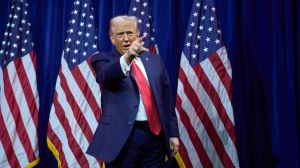8216;Reforms have larger democratic sanction8217;
Central and state govts have worked together for furthering reforms,says Namo Narain Meena.
Economic reforms have a larger democratic sanction in spite of the political differences,Minister of State for Finance Namo Narain Meena said today.
8220;Irrespective of political differences,the central and state governments have worked together for furthering reforms. Thus,while reforms in India may be gradual,it is sure and has a larger democratic sanction,8221; Meena said in a written reply to the Rajya Sabha.
Reforms are an ongoing process and a number of initiatives have been taken in the last three years,he said.
8220;In fiscal policy,which seeks to resume mandated fiscal consolidation,to obviate the main risk of overshooting of subsidies,the Budget for 2012-13 has announced the endeavour to restrict expenditure thereon to under two per cent of the GDP,8221; he said.
This would be facilitated by move towards nutrient-based subsidy in fertilisers and the use of unique identity based Aadhaar system for rationalising subsidies,he added.
The government is expediting passage of Direct Taxes Code Bill and trying for a consensus among stakeholders to implement Goods and Services Tax GST.
The National Manufacturing Policy envisages to increase the share of manufacturing in GDP to 25 per cent,as well as creating 10 crore jobs in 10 years,the minister added.
A number of legislative measures/amendments are being taken up in this session of Parliament as part of financial sector reforms,he said.
With a federal structure and vibrant multi-party democratic polity,reforms in India have been made possible through the process of dialogue and consensus with different stakeholders, Meena said.
- 01
- 02
- 03
- 04
- 05































